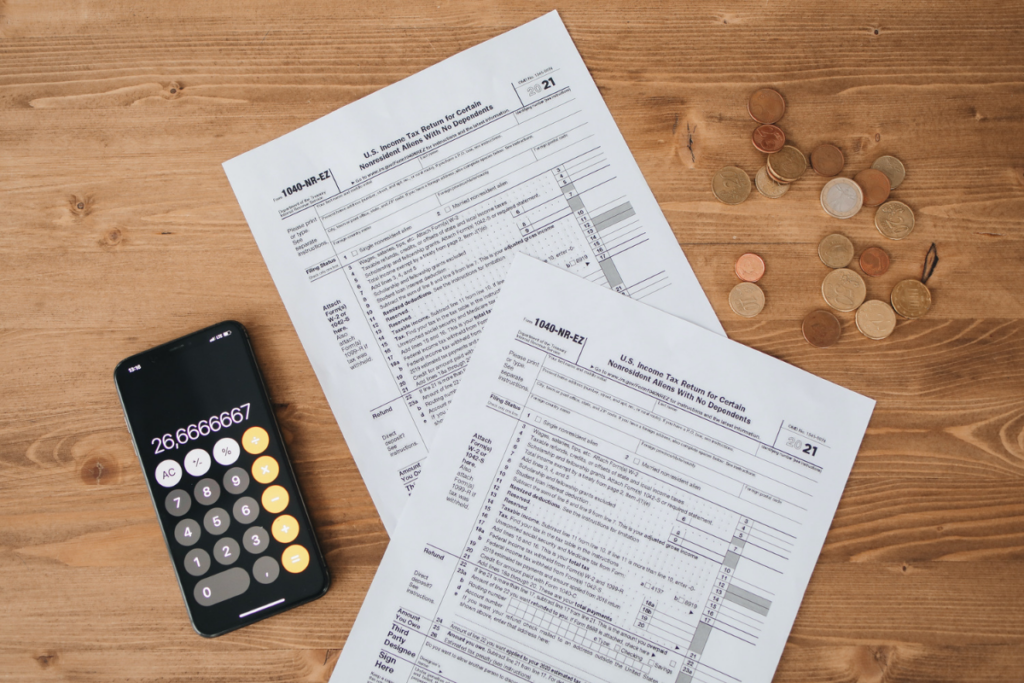Many US citizens living overseas are surprised to learn about their obligation to file an annual tax return with the IRS. What if you’re already living and working in another country, and paying foreign tax on that income? How can you avoid double taxation? This is where the IRS Foreign Tax Credit (FTC) comes into play.
This IRS tax provision exists to prevent double taxation on the same income.1 There is some strategy involved in determining whether the Foreign Tax Credit is the right provision for you, though. In the following article, we’ll define the parameters under which to apply this credit and discuss alternatives that may better fit your US tax situation.
First, let’s walk through the basics.
📋 Key Updates for Foreign Tax Credit in 2025
- The FTC allows US expats who pay foreign income taxes to reduce their US tax liability by claiming a credit for taxes paid abroad. This is especially beneficial for those living in high-tax countries where foreign tax rates exceed US rates.
- Not all expats benefit from the FTC, particularly those who don’t pay foreign taxes or have lower foreign tax rates. In such cases, the Foreign Earned Income Exclusion (FEIE)—which excludes up to a specified amount of earned income ($126,500 for 2024 and 130,000 for 2025)—may be more advantageous.
- Choosing between FTC and FEIE depends on factors like income type, residency status, and future financial goals (e.g., contributing to a Roth IRA).
What is the Foreign Tax Credit?
The US Foreign Tax Credit allows Americans who pay foreign income taxes to reduce their overall US tax liability. How? For every dollar paid in foreign taxes, expats are able to claim a ‘credit’ for foreign taxes paid on their US tax bill.
To illustrate, let’s consider a Foreign Tax Credit example. Tony, a US citizen, lives and works in the UK. He’s employed at a British company and earns the equivalent of $70,000 of foreign income. He pays (very roughly) $20,000 a year in UK taxes. Because the UK income tax rates are higher than those in the US, claiming the Foreign Tax Credit will give him more than enough credits to clear Tony of any US tax liability.
📢 Action required!
While this credit can eliminate the need to pay US taxes (by wiping out any money owed), expats are still required to file and claim the credit.
Understanding deadlines and extensions
The IRS acknowledges that expats have to maneuver around the deadlines and shifted tax seasons of other countries. Let’s consider Tony again. The UK tax year spans from April 6th to April 5th. The US tax year, on the other hand, spans January 1st to December 31st. Thus, filing each year before the standard April 15th due date isn’t always possible.
For this reason, expats have an automatic US filing extension to June 15th.
Those who need added time can request an extra extension to October 15th.
If additional time is needed, expats may submit a written request to the IRS for one final extension to December 15th.
Digging in further: Should you claim the Foreign Tax Credit?
To benefit from the IRS’s Foreign Tax Credit (FTC), it’s important to understand when you can claim it. To do so, you must meet certain requirements:
- The foreign tax must be considered income tax.
- Your country of residence must impose the tax on you.
- The foreign tax must be legal and an actual foreign tax liability2
In some cases, a US citizen may reside abroad, but be unable to claim the Foreign Tax Credit. Let’s think through another example.
Imagine that you’re a digital nomad. As a result of your highly mobile lifestyle, your time may be broken up between different countries such that you lack the requisite time and/or social ties to be considered a foreign tax resident. This effectively makes you ineligible to claim the Foreign Tax Credit, because you have not paid any foreign taxes. In these cases, the Foreign Earned Income Exclusion (FEIE) may be a better option for reducing US taxes.
A brief look at the FEIE
The Foreign Earned Income Exclusion allows expats to simply exclude the first around $126,500 of their earned income from US taxation in 2024 (increasing to $130,000 in 2025). Note: the exact amount increases each year to account for inflation.
Earned income includes all income that is paid for services provided, such as salaries, wages, self-employment income, tips, and bonuses. It does not include passive income, such as dividends, interest, rental or pension income, social security benefits, capital gains, or alimony.
The Foreign Tax Credit, on the other hand, doesn’t distinguish between earned and unearned income, so long as foreign income taxes have been paid on it.
Who should claim the Foreign Tax Credit?
While claiming the Foreign Tax Credit isn’t always possible (or even advisable) in every expat circumstance, there are certain situations where this strategy is likely your best option.
Expats living in high-tax countries
In general, expats who live in a single foreign country and pay foreign income tax at a higher rate than the US rate on all of their global income are generally best off claiming the Foreign Tax Credit.
Expats who either don’t pay foreign taxes or who pay them at a lower rate, whose only income is earned, and who can meet either the Physical Presence Test or the Bona Fide Residence Test are generally better off claiming the FEIE.
Those planning to live & work abroad for several years
If expats who pay more foreign income tax than the US income tax they owe claim the US Foreign Tax Credit, they can claim a greater value of US tax credits than they need to eliminate their US tax liability.
This results in excess US tax credits that they can carry forward for up to ten tax years. These can be applied to future income or carried back to the previous tax year. So, the FTC is particularly useful for expats who work abroad for several years.
Expat parents with dependent children
For the 2024 tax year, the US Child Tax Credit allows expat parents to claim up to $2,000 per qualifying dependent child.
What happens if someone’s US tax liability is already at $0 by applying other credits available to them? Great news: The Child Tax Credit is considered partially “refundable.” This means that parents may receive up to a $1,700 payment per child!
Important callout:
The Foreign Earned Income Exclusion restricts parents from claiming refundable child tax credits. In other words, expat parents considering whether they should eliminate their US tax liability with either the Foreign Earned Income Exclusion or the Foreign Tax Credit may be better off claiming the latter. When in doubt, consult with a US expat tax specialist to determine the most tax efficient strategy for you and your family.
Those hoping to contribute to Roth IRAs
Roth IRAs are useful pension saving plans. Contributions are made from (post-tax) reportable earned income, while distributions in retirement are completely tax-free.
Expats who exclude all their income by claiming the Foreign Earned Income Exclusion, however, don’t have any reportable earned income. So, they cannot make contributions to Roth IRA plans. Expats who claim the Foreign Tax Credit can.
How to claim the Foreign Tax Credit using IRS Form 1116
IRS Form 11163 is a two-page form that requests the information and figures necessary to calculate what value of US tax credits can be claimed based on foreign taxes paid.
It requires expats to provide details about what country their foreign taxes were paid in, the value of foreign taxes paid (in both the foreign currency and USD), the types of income being reported, and any foreign deductions and expenses.
For detailed, step-by-step filing instructions for Form 1116, check out our recent article, Foreign Tax Credit: Form 1116 Instructions (screenshots & examples are included!).
Catching up on US taxes: Can you still claim the IRS Foreign Tax Credit?
It’s quite common for many Americans living abroad to be unaware of their filing requirements. To support US expats, the IRS created a penalty-free path to US tax compliance for qualifying US expats. The amnesty program is called the Streamlined Procedure.
The Streamlined Procedure requires expats to file their last three US tax returns, file their last six FBARs (Foreign Bank Account Reports), and they must self-certify that they weren’t willfully avoiding filing. Many US expats find it helpful to work closely with a US expat specialized in filing for Americans living overseas. Working with a specialist ensures that all of IRS credits, exclusions, and provisions are properly claimed (including the Foreign Tax Credit!).
Resources
- Foreign Tax Credit (FTC) – IRS
- Foreign Taxes that Qualify for the Foreign Tax Credit | The IRS
- Form 1116 – IRS
The Foreign Tax Credit - FAQ
-
Is the Foreign Tax Credit refundable?
The Foreign Tax Credit is nonrefundable.

 Connect on LinkedIn
Connect on LinkedIn




